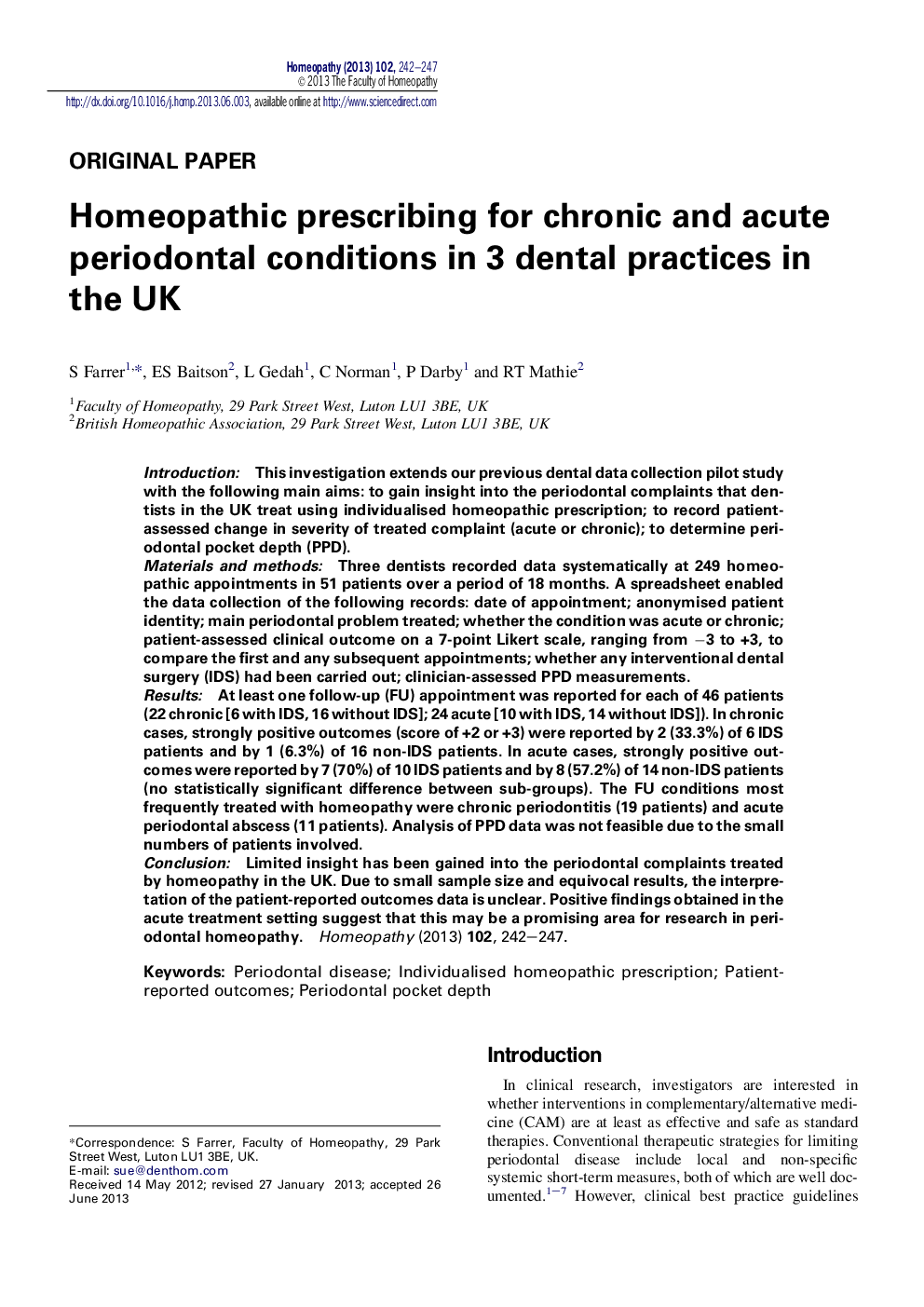| Article ID | Journal | Published Year | Pages | File Type |
|---|---|---|---|---|
| 2630004 | Homeopathy | 2013 | 6 Pages |
IntroductionThis investigation extends our previous dental data collection pilot study with the following main aims: to gain insight into the periodontal complaints that dentists in the UK treat using individualised homeopathic prescription; to record patient-assessed change in severity of treated complaint (acute or chronic); to determine periodontal pocket depth (PPD).Materials and methodsThree dentists recorded data systematically at 249 homeopathic appointments in 51 patients over a period of 18 months. A spreadsheet enabled the data collection of the following records: date of appointment; anonymised patient identity; main periodontal problem treated; whether the condition was acute or chronic; patient-assessed clinical outcome on a 7-point Likert scale, ranging from −3 to +3, to compare the first and any subsequent appointments; whether any interventional dental surgery (IDS) had been carried out; clinician-assessed PPD measurements.ResultsAt least one follow-up (FU) appointment was reported for each of 46 patients (22 chronic [6 with IDS, 16 without IDS]; 24 acute [10 with IDS, 14 without IDS]). In chronic cases, strongly positive outcomes (score of +2 or +3) were reported by 2 (33.3%) of 6 IDS patients and by 1 (6.3%) of 16 non-IDS patients. In acute cases, strongly positive outcomes were reported by 7 (70%) of 10 IDS patients and by 8 (57.2%) of 14 non-IDS patients (no statistically significant difference between sub-groups). The FU conditions most frequently treated with homeopathy were chronic periodontitis (19 patients) and acute periodontal abscess (11 patients). Analysis of PPD data was not feasible due to the small numbers of patients involved.ConclusionLimited insight has been gained into the periodontal complaints treated by homeopathy in the UK. Due to small sample size and equivocal results, the interpretation of the patient-reported outcomes data is unclear. Positive findings obtained in the acute treatment setting suggest that this may be a promising area for research in periodontal homeopathy.
